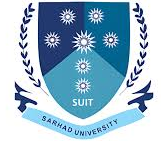GENDER DISPARITIES IN PSYCHOPATHY, PTSD AND DEPRESSION AMONG ADULTS IN PAKISTAN: DEPRESSION AS MEDIATOR
DOI:
https://doi.org/10.31529/2024/1/10Keywords:
Psychopathy, PTSD, Depression, Gender disparityAbstract
With growing awareness and destigmatization of mental health issues, there's an increasing recognition of the prevalence and impact of conditions like PTSD, psychopathy, and depression among adults. Understanding these conditions helps to address misconceptions and promote mental health literacy. Studying these factors helps to understand their impact and develop effective coping strategies and support systems. Gender disparities do not exist in isolation but intersect with other social determinants of health, such as age, socioeconomic status, education, and access to healthcare. For this purpose, sample of 381 adults between the ages of 18 and 45 was taken from different geographical region of Pakistan who experienced any kind of traumatic situation through snowball sampling. Pearson Product Correlation analysis was use to find correlation of demographics variables with study variables. Socioeconomic status differences were found out by independent t-test. Results of the study revealed that depression mediates the relationship between PTSD and psychopathy. Findings from this research can inform evidence-based policy recommendations aimed at reducing gender disparities in mental health outcomes and improving access to culturally appropriate mental health services in Pakistan. By amplifying the voices of marginalized groups and advocating for gender-sensitive policies, researchers can contribute to broader social change and promote mental health equity.
Downloads
Published
Issue
Section
License
Copyright (c) 2024 Misbah Shafique Abbasi, Iqra Shafique Abbasi

This work is licensed under a Creative Commons Attribution 4.0 International License.
Submission of an original manuscript to the Journal will be taken to mean that it represents original work not previously published, that it is not being considered elsewhere for publication. And if accepted for publication, it will be published in print and online and it will not be published elsewhere.
The journal main policy reflects in its stance that the publication of scholarly research is exclusively meant to disseminate knowledge and not-for-purposes.
Copyright Statment
Sarhad Journal of Management Sciences is published by Sarhad University of Science and Information Technology Peshawar. This copyright statement entails that all contents (including text, tables, graphs, images, or any materials that is part and parcel of a research article submitted to the journal) belong to/ property of the person who owned it prior to submission this journal. Publication of the submitted article will not affect the ownership of copyright of the subject materials. SJMS and its users benefit from a general licence over all content submitted under a Creative Commons CC-BY licence over all content. However, content which is not part of the submitted article, is the property of SJMS. In a nutshell, the combination of all content on the SJMS website, the look and feel of the website, is the property of Sarhad University of Science and Information Technology Peshawar.
As an author or contributor, you grant permission to others to reproduce your articles, including any graphics and third-party materials supplied by you, in accordance with the SJMS Terms and Conditions. The licence granted to third parties over all contents of each article, including third-party elements, is a Creative Commons Attribution ("CC BY") licence. The current version is CC-BY, version 4.0 (http://creativecommons.org/licenses/by/4.0/), and the licence will automatically be updated as and when updated by the Creative Commons organisation.
You may include a requirement to reproduce copyright notices but you may not restrict the right to reproduce the entire article, including third-party graphics. This means that you must obtain any necessary third-party consents and permissions to reproduce third-party materials in your articles submitted to SJMS.
Copyright Statement updated September 13, 2022.




